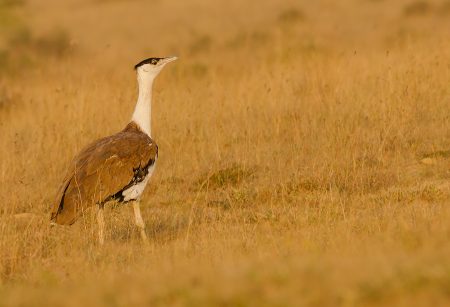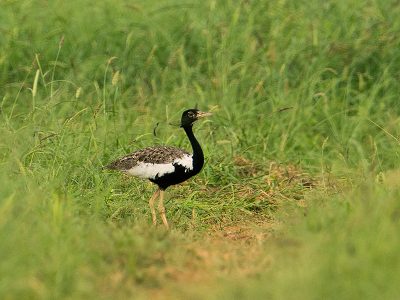Great Indian Bustard and Lesser Florican – Endangered Birds 20/07/2019 – Posted in: Daily News
GREAT INDIAN BUSTARD AND LESSER FLORICAN – ENDANGERED BIRDS
The apex court has constituted a committee to urgently frame and implement an emergency response plan for the protection of these species.
- Over the last 50 years, the population of the Great Indian Bustard has recorded a decline of over 82 percent.
- The population of the Lesser Florican has seen a sharp decline of 80 percent over the past few decades.
Great Indian Bustard
- Scientific name: Ardeotis nigriceps
- Found on the Indian subcontinent.
- The species is critically endangered by hunting and loss of its habitat.
- It is protected under the Wildlife Protection Act 1972 of India.
- Listed as Critically Endangered on the IUCN Red List
- Listed in Appendix I of CITES
- The bird was historically found in Punjab, Haryana, Uttar Pradesh, Madhya Pradesh, Chhattisgarh, Odisha, Andhra Pradesh, Rajasthan, Gujarat, Maharashtra, Karnataka, and Tamil Nadu.
- Today the bustard is restricted to isolated pockets in Andhra Pradesh, Gujarat, Karnataka, Maharashtra, Madhya Pradesh, and Rajasthan.
- The great Indian bustard is omnivorous.
Lesser Florican
- Scientific name: Sypheotides indicus
- Also known as the likh or kharmore.
- The two species of smaller bustards have been called “floricans”.
- Smallest in bustard family.
- It is endemic to the Indian Subcontinent where it is found in tall grasslands.
- Best known for the leaping breeding displays made by the males during the Monsoon season.
- The species is highly endangered.
- Historic records exist from the Makran coast of Balochistan province in Pakistan.
- It breeds mainly in the central and western parts of India.
- Lesser floricans feed on a wide variety of small vertebrates and invertebrates.
Source: News on Air
You can follow us on LinkedIn and on Instagram (Diligent IAS) for more updates related to IAS Preparation/ Study Material, Subscribe to our Facebook Page and Youtube Channel- Diligent IAS


